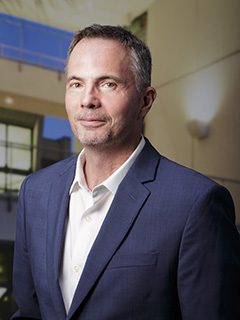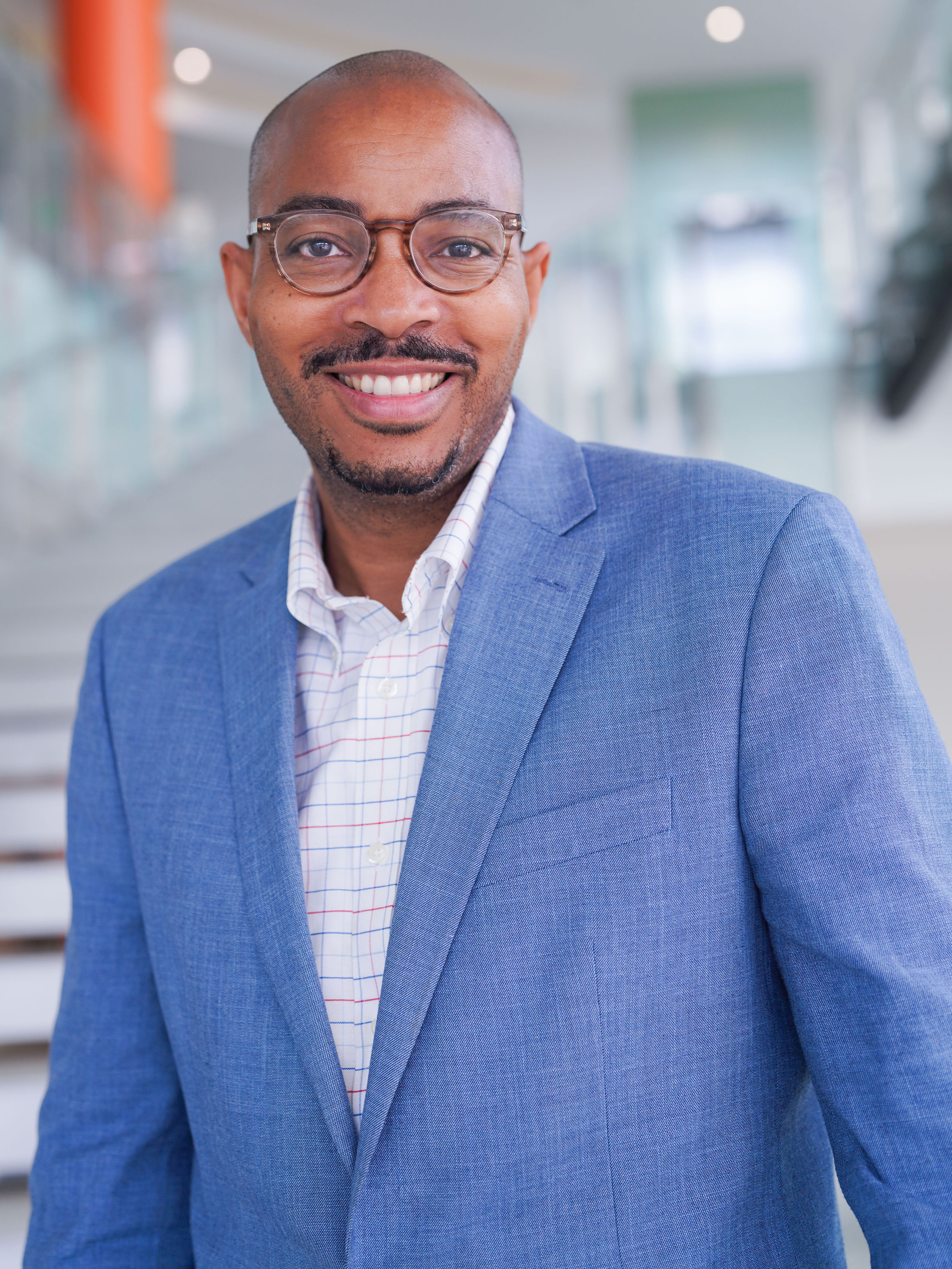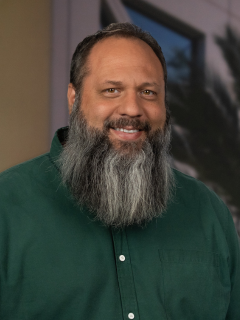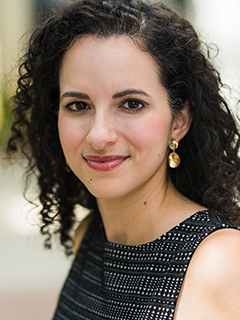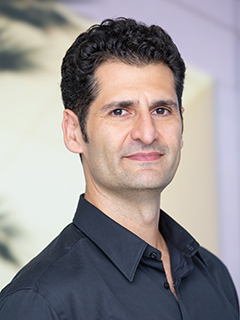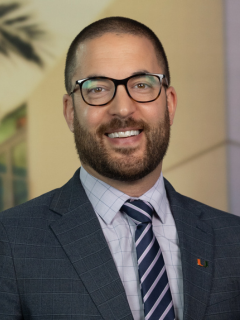The musicology faculty at the Frost School of Music draw from a vast wealth of expertise in field work, research, and teaching. The background and interest areas of our faculty members are listed below:
David Ake, Professor
David Ake is professor and chair of the Department of Musicology. An award-winning scholar and educator, Ake authored Jazz Cultures; Jazz Matters: Sound, Place, and Time since Bebop and the Jazz/Not Jazz: The Music and Its Boundaries co-edited with Charles Hiroshi Garrett and Daniel Goldmark. Dr. Ake has delivered papers at the national meetings of the American Musicological Society, the Society for American Music, and the International Association for the Study of Popular Music.
Professor Ake remains active as a jazz pianist and composer. Among his recording credits are Bridges, which appeared on multiple Best-of-2013 lists, Lake Effect, and, most recently, Humanities, all for Posi-Tone Records. He has performed or recorded alongside a host of renowned musicians.
Prior to joining the Frost School, Professor Ake chaired the Department of Music at Case Western Reserve University and was a longtime faculty member at the University of Nevada, Reno. Ake’s honors include the Nevada Regents’ Teaching Award and the Society for American Music’s Housewright Dissertation Award. He holds a Ph.D. in musicology and M.A. in ethnomusicology from UCLA, along with degrees in jazz performance from the California Institute of the Arts and the Frost School of Music.
Melvin Butler, Associate Professor
Melvin L. Butler is an Associate Professor in the Department of Musicology. He specializes in music and religion in Haitian, Jamaican, and African American communities. Dr. Butler’s research explores the cultural politics of musical performance, national identity, and extraordinary experience. He also examines discourses of cultural authenticity and spiritual power that inflect congregational practice. At the heart of his scholarly work lies a critical reconsideration of how spiritually charged music making is embedded in processes of boundary crossing, identity formation, and social positioning throughout the African diaspora.
An acclaimed saxophonist, Dr. Butler has performed with Brian Blade and the Fellowship Band for over two decades. He is featured with this ensemble on several albums, including Brian Blade Fellowship (Blue Note 1998), Perceptual (Blue Note 2000), Season of Changes (Verve 2008), and the Grammy-nominated Landmarks (Verve 2014). Dr. Butler has also toured the U.S., Europe, and the Caribbean with celebrated Haitian band Tabou Combo, with whom he recorded three albums—Why Not? (1997), 360 Degrees (1997), and Sans Limites (2000).
Dr. Butler served as Secretary of the International Association for the Study of Popular Music (U.S. Branch) from 2008 to 2010 and was also elected to the Board of Directors of the Haitian Studies Association from 2010 to 2013. In 2012 and 2013, he was a fellow-in-residence at Yale University’s Institute of Sacred Music. Prior to joining the Frost School of Music faculty, he taught at the University of Chicago and the University of Virginia.
Dr. Butler earned his Ph.D. in ethnomusicology from New York University, where he also received an M.A. in jazz studies. He also holds a bachelor’s degree in performance from Berklee College of Music.
Brent Lee Swenson, Lecturer
Brent Swanson is lecturer in the Department of Musicology, as well a Bachelor of Arts in Music advisor. He holds a B.F.A and M.M. in musicology from the University of Florida and a Ph.D. in ethnomusicology from the University of Maryland.
Mr. Swanson’s extensive research focuses on the musical traditions of Africa, Latin America, the United States, and the Caribbean. Mr. Swanson’s dissertation, "Rwanda’s Voice: An Ethnomusicological Biography of Jean-Paul Samputu," is a multi-sited ethnographic study of Rwandan musical identity through the music of Rwandan singer and songwriter Jean-Paul Samputu. Through biographical research, as well as musical transcription and analysis, Mr. Swanson demonstrates how Samputu’s use of four distinct vocal timbres and his incorporation of various sounds and styles from East and Central Africa, Europe, the United States, and the Caribbean have challenged nationalist discourse about Rwandan identity, and promoted reconciliation in its post-genocide evolution. He is currently preparing a chapter on Mr. Samputu’s music for the book Arts, Music, and Social Healing: Experiences from the African Great Lakes Region and Beyond, which is edited by Helen Hintjens and Rafiki Ubaldo, and due to be published in 2017.
Mr. Swanson is also a professional performer and songwriter who has appeared with a number of distinguished artists, including Bo Diddley, Marco Pereira, Hamilton de Hollanda, and Jean-Paul Samputu. He has also served as a worship leader at various churches for the past sixteen years, and his song “Sing Out My Soul” was featured on the Andy Piercy-produced record Songs From The Mission in 2010.
Mr. Swanson served as President of the non-profit Mizero Children of Rwanda foundation from 2007-2008, where he helped to raise awareness about how traditional music and dance can facilitate peace and reconciliation in Rwanda. The dance troupe toured the U.S. and Canada, and was featured at the LEAF festival and at the United Nations.
Marysol Quevedo, Assistant Professor
Marysol Quevedo, a native of San Juan, Puerto Rico, is Assistant Professor of Musicology at the Frost School of Music at the University of Miami. She received her Ph.D. in musicology with a minor in ethnomusicology from Indiana University. Her research interests include art music in Cuba after the 1959 Revolution and more broadly the relationship between music composition and performance, national identity, and politics in Latin American music scenes. Quevedo’s chapter, “Experimental Music and the Avant-Garde in Post-1959 Cuba: Revolutionary Music for the Revolution,” appeared in Experimentalism in Practice: Perspectives from Latin America from Oxford University Press. She has written several entries for the second edition of the Dictionary of American Music and is a contributor to Oxford Annotated Bibliographies.
Quevedo spent three months in the fall of 2012 at the Cuban Heritage Collection at the University of Miami, thanks to a generous dissertation research fellowship provided by the CHC. To learn more about this experience feel free to read Quevedo’s Fellowship Report or watch Quevedo’s exit interview video.
Quevedo has presented at the national meetings of the American Musicological Society, the Society for Ethnomusicology, the Sociedad Chilena de Musicologia, the Canadian Association of Latin American and Caribbean Studies, Florida International University’s Cuban Studies conferences, and the University of Miami’s Cuban Heritage Collection’s New Directions in Cuban Studies conferences. She is also an active member of the Latin American and Caribbean Music Section of the Society for Ethnomusicology and the Cold War and Music Study Group of the American Musicological Society.
Frederick Reece, Lecturer
Frederick Reece is a Lecturer at the Frost School of Music. His research examines the works of major eighteenth- and nineteenth-century composers as emulated by twentieth-century forgers, and the construction of analogue and digital machines for the simulation of musical composition itself. Dr. Reece is currently working on a book addressing these themes, titled The Craft of Forgery in Musical Composition. Dr. Reece teaches classical music history, music analysis, and music theory.
Dr. Reece holds a Ph.D. and MA in music from Harvard University and a B.A. from the University of Oxford. He is the recipient of academic honors including a DAAD Research Fellowship (2015–16), a Harvard Horizons Scholarship (2017), and the American Musicological Society’s Paul A. Pisk Prize(2015) and Alvin H. Johnson AMS 50 Fellowship (2017). His most recent research article, “Composing Authority in Six Forged ‘Haydn’ Sonatas,” was published in the Journal of Musicology in 2018.
Anne Searcy, Assistant Professor
Anne Searcy is an Assistant Professor of Musicology at the Frost School of Music. She researches the intersections of music, politics, and dance, and she is particularly interested in the question of how the performing arts influence social, political, and economic systems. Dr. Searcy is working on a book, Ballet in the Cold War: A Soviet-American Exchange, currently under contract with Oxford University Press. The book will analyze the American and Soviet cultural diplomacy programs, focusing on tours by the Bolshoi Ballet in the United States and by American Ballet Theatre and the New York City Ballet in the Soviet Union. Dr. Searcy has also been researching the relationship between dance and hip hop music in the Broadway show Hamilton. Her article on the subject is forthcoming in American Music.
At the Frost School of Music, Dr. Searcy teaches courses in classical music history, popular music history, and gender and sexuality. She has also led a graduate student seminar, “Music and Power,” in which students grapple seriously with the question, “Can music change the world?”
Dr. Searcy holds a Ph.D. in music from Harvard University and a B.A. in history and music from Swarthmore College. In 2015 she was awarded an Alvin H. Johnson AMS 50 Dissertation Fellowship by the American Musicological Society. She previously held a fellowship jointly at New York University’s Center for Ballet and the Arts and the Jordan Center for the Advanced Study of Russia. Her article “The Recomposition of Aram Khachaturian’s Spartacus at the Bolshoi Theater, 1958–1968” appeared in Journal of Musicology, and she has presented papers at the meetings of the International Musicological Society, the American Musicological Society, the Society of Dance History Scholars, and the Society for American Music.



